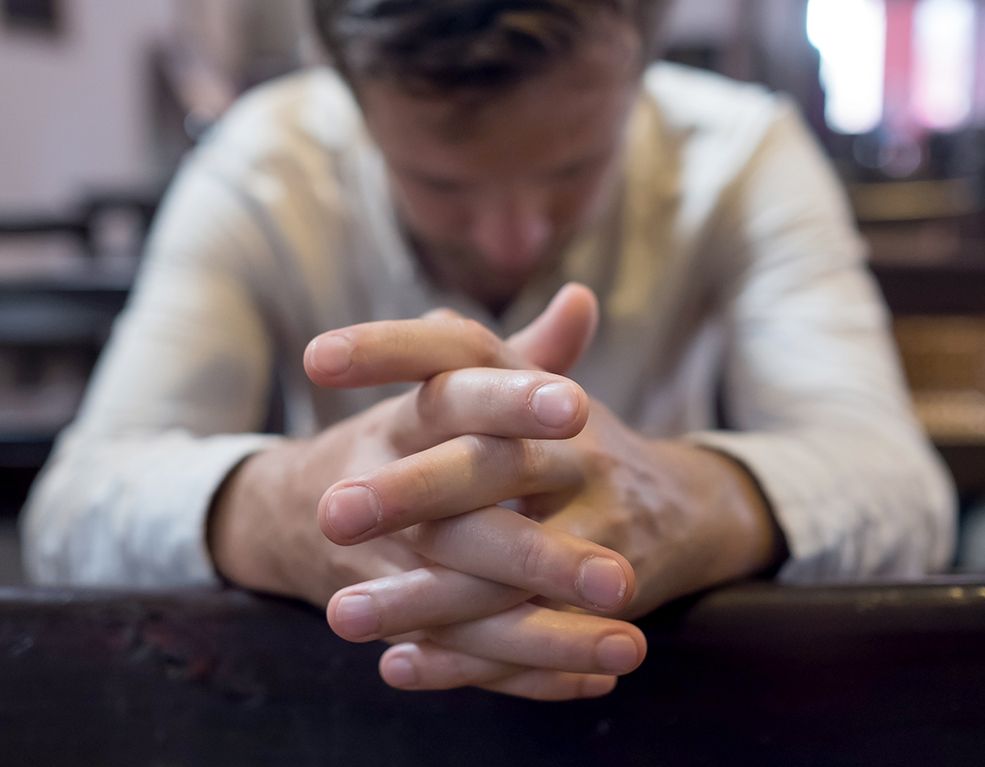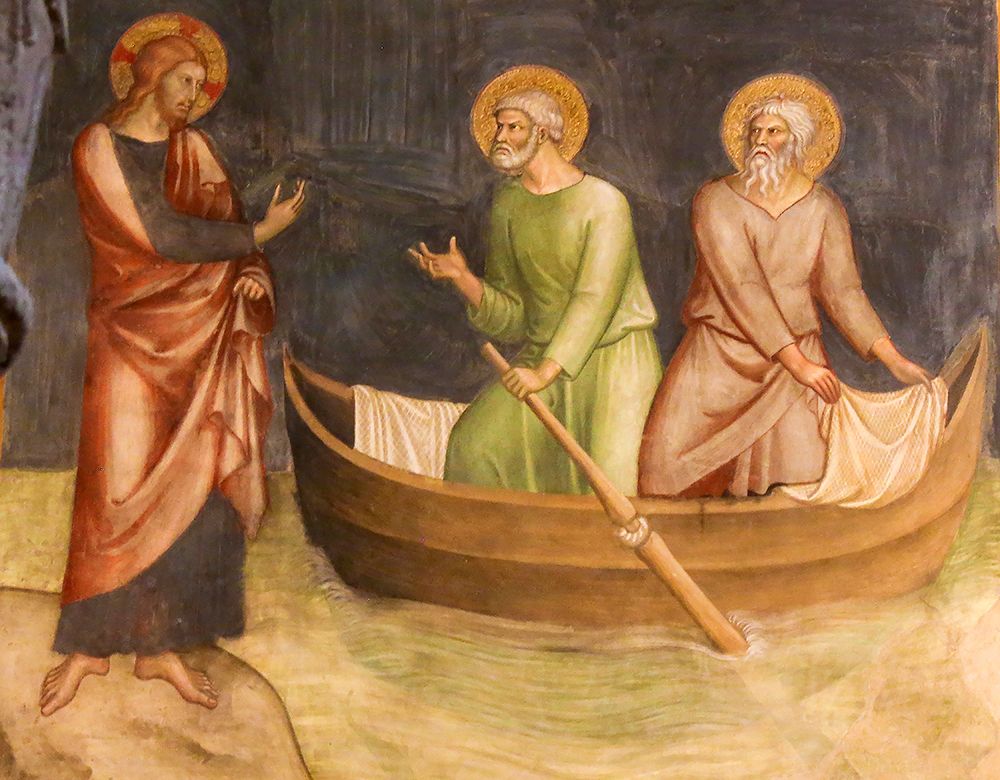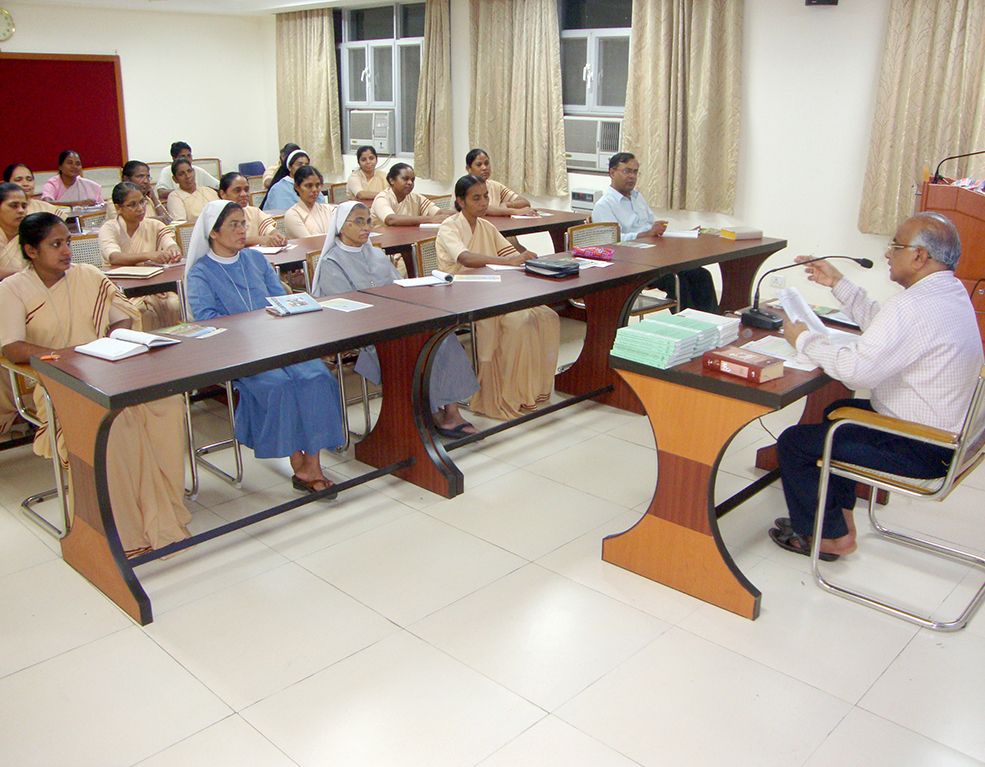At the beginning of the second week comes the meditation: the Call of the King and in the middle of the second week, that of the Two Standards and the Three Types of Persons. In prayer, the imagination brings the soul under the standard of Jesus to ask the grace to choose what is more pleasing to His Divine Majesty, what is more to His glory and our personal salvation.
These contemplations are meant to understand what God wants from us in terms of in what life or state of life His Divine Majesty wants to be served by us. We follow the example of the teenager Jesus, who not only obeyed His parents in Nazareth but disobeyed and left the adopted father and natural mother to attend to the pure service of His Eternal Father.
Jesus contrasted His way to the way of the world quite emphatically: “He who is not with me is against me” (Luke 11:23). Master Ignatius helps us apply this to ourselves in the key meditation called The Two Standards–a “standard” meaning a flag.
Under Jesus’ Banner
As His disciples, we have to choose where we are going to stand–with Jesus or with the world. No matter what life the Spirit has drawn us to, once we are baptized and confirmed, we are called to stand in Jesus’ company under His flag.
We begin to move under Jesus’ standard when we join Him in the lively conviction that everything we have and are is God’s gift. However much or little we have, we say gratefully, “Look at all God has given me.” Then, through a life of love and service, the Spirit leads us to live as meekly and humbly as the Lord lived.
So, the imagination brings us under the standard of Jesus, our King, and to which ideal Jesus calls His apostles and to which category of men do we belong: to see ourselves as we stand before God, our Lord, and all His Saints and to desire and know what is more pleasing to His Divine Goodness.
We are invited to ask for what we want: the grace to choose what is more pleasing to God, what is more to the glory of His Divine Majesty and the salvation of our soul.
At The Command Of Our King
A true turning around of the heart is necessary in order to give ourselves to Jesus Christ. It is a matter of losing one’s life in order to save it, sacrificing oneself entirely through total self-giving. This is the paradoxical condition for the achievement of the Kingdom.
In the Bible, the Kingdom is neither a people nor a place but an event: the presence of the Holy One in our very midst in this world, in history, in people. The Kingdom has been won already through the death and resurrection of Jesus Christ. The Kingdom is within all human beings: the presence of the Spirit of the Risen Jesus.
To achieve the Kingdom is to labor with Christ, to bring all people to embrace the presence of Christ within them, in their behavior and in the way they relate to themselves, to the other persons, to the world, and to God.
That is why faith in the Kingdom cannot be separated from its behavioral expression in the life of individuals and communities, in the organization of social, political and economic structures, and in the way we treat the world.
Saint Paul perfectly describes the mission to bring the Kingdom to be: “It is now my happiness to suffer for you… to deliver his message in full; to announce the secret hidden for long generations. The secret is this: Christ in you, the hope of the glory to come” (Col. 1:24-27).
What Kind Of Person Am I?
The ideal is clear in front of us: to heed the call of Christ, our King, and to stand under His banner. It is now the question of choosing our own stance. This is when our true nature will reveal itself and show to which category of people we belong. There are those who talk a lot about being with Jesus but take no action. Life runs out swiftly without them taking a decision.
There are others who busy themselves in doing every single detail but not the essential one. And then there are the doers of the word. We must pray that the grace of the Holy Spirit draws us to that type of choice. To choose Jesus and to stick to our choice.
To choose Jesus is to choose poverty, contempt, and suffering with Christ rather than being well off, honored, and respected. This is the third degree of humility, after the decision to avoid what is forbidden: mortal and venial sin. It is the way of holiness, the Christian way.

























